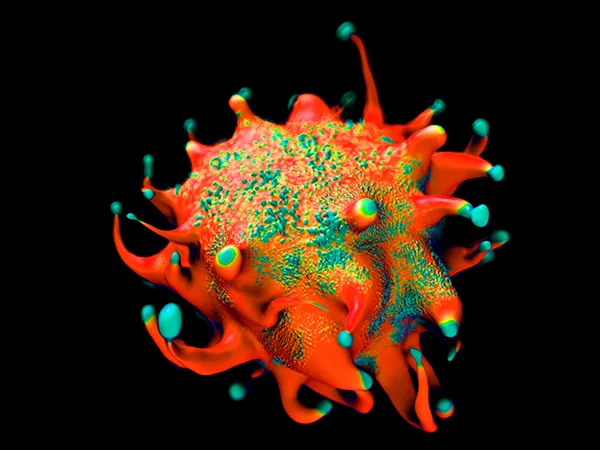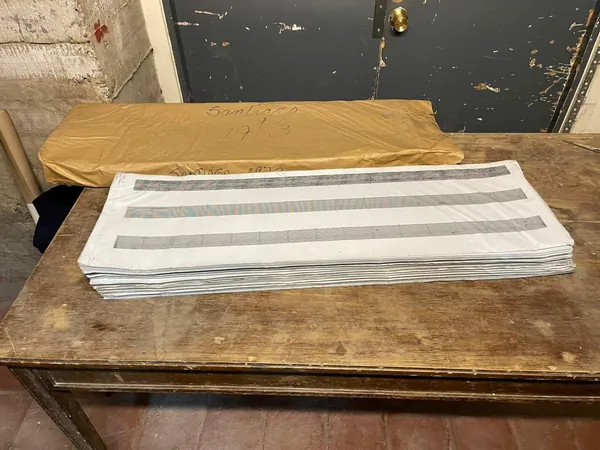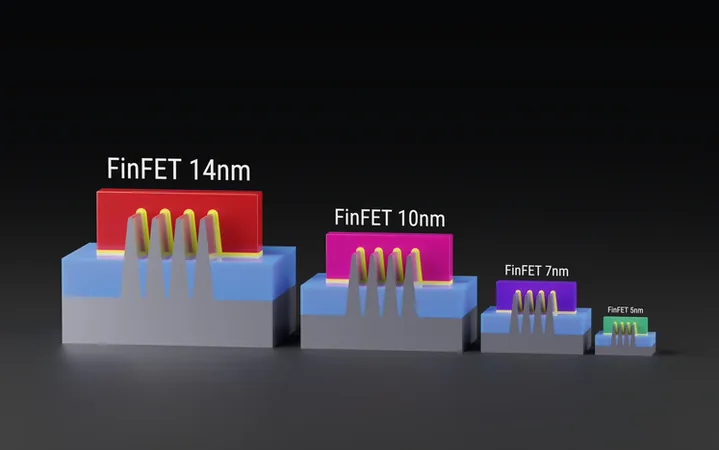
Breakthrough in Lymphoma Treatment: EZH2 Inhibitors Amplify Immunotherapy Effectiveness!
2024-12-08
Author: Jia
Introduction
A recent preclinical study from Weill Cornell Medicine has unveiled exciting news for lymphoma patients: EZH2 inhibitors, a new class of anticancer drugs, may significantly boost the effectiveness of T-cell-based immunotherapies.
What is EZH2?
EZH2, an enzyme involved in controlling gene expression in tumor cells, has been identified as a critical player in several types of cancer. The study, led by Dr. Wendy Béguelin and her team, demonstrated that combining T-cell immunotherapy with EZH2 inhibitors resulted in more substantial tumor reduction in cases of B-cell non-Hodgkin lymphomas (B-NHL) compared to immunotherapy alone.
Expert Commentary
Dr. Béguelin, who is not only an assistant professor of pharmacology at Weill Cornell but also a prominent lymphoma researcher, stated, “These encouraging preclinical results have prompted us to initiate pilot studies of an EZH2 inhibitor with immunotherapies in lymphoma patients.” Their findings were recently published in *Cancer Cell*, delineating the study titled "EZH2 inhibition enhances T cell immunotherapies by inducing lymphoma immunogenicity and improving T cell function."
Background on T-cell Therapies
T-cell therapies, including CAR-T cells, have shown promise in combating various blood cancers, yet relapse remains a significant challenge. For instance, while CAR-T cell therapy, particularly targeting CD19, has revolutionized treatment for refractory B-NHL such as diffuse large B cell lymphoma (DLBCL) and follicular lymphoma (FL), only about 30-40% of patients experience lasting remission after five years.
The Role of EZH2 Mutations
The researchers noted that mutations in the EZH2 gene, which can inadvertently activate the enzyme, are commonly observed in lymphomas. Interestingly, EZH2 inhibitors have demonstrated benefits even in patients with non-mutant EZH2. The FDA approved tazemetostat, an EZH2 inhibitor, in 2020 for patients with recurrent follicular lymphoma, while Japan granted approval to valemetostat in 2022 for relapsed or refractory adult T-cell leukemia/lymphoma.
Mechanism of Action
The Weill Cornell team discovered that active EZH2 promotes immune evasion by suppressing the expression of molecules essential for immune recognition, thereby cloaking lymphoma cells from detection by T cells. Their innovative approach theorizes that inhibiting EZH2 could rejuvenate the immune system’s ability to identify and eradicate cancerous cells, thereby improving the effectiveness and sustainability of immunotherapies.
Experimental Validation
To validate their hypothesis, they developed a novel mouse model for follicular lymphoma and assessed the impact of EZH2 inhibitors in tandem with immunotherapies, including CAR-T cell therapy and bispecific antibodies. Remarkably, in a controlled experiment, 100% of mice receiving a combination of tazemetostat and CAR-T cells survived longer than the 40-day study period, a stark contrast to the majority of mice treated with just CAR-T cells who succumbed within 11 days.
Results of Combination Therapy
The combination therapy not only yielded impressive survival rates but also reduced immunosuppressive elements within the tumor microenvironment, supporting more aggressive T-cell activity. Both combinations of EZH2 inhibitors with CAR-T and bispecific antibodies demonstrated enhanced effectiveness and broader T-cell engagement.
Next Steps in Research
As a testament to their promising findings, the researchers have already commenced two pilot clinical trials: one pairing tazemetostat with standard CAR-T therapy in relapsed/refractory B-NHL and another combining it with mosunetuzumab for untreated FL.
Conclusion
In conclusion, this groundbreaking research sheds light on the pivotal role of EZH2 in modifying the immune landscape of lymphomas. With ongoing clinical trials and further investigations, the hope is to develop more targeted therapies that will ultimately improve outcomes for patients battling these challenging diseases. Stay tuned—this could be a game changer in lymphoma treatment!





 Brasil (PT)
Brasil (PT)
 Canada (EN)
Canada (EN)
 Chile (ES)
Chile (ES)
 España (ES)
España (ES)
 France (FR)
France (FR)
 Hong Kong (EN)
Hong Kong (EN)
 Italia (IT)
Italia (IT)
 日本 (JA)
日本 (JA)
 Magyarország (HU)
Magyarország (HU)
 Norge (NO)
Norge (NO)
 Polska (PL)
Polska (PL)
 Schweiz (DE)
Schweiz (DE)
 Singapore (EN)
Singapore (EN)
 Sverige (SV)
Sverige (SV)
 Suomi (FI)
Suomi (FI)
 Türkiye (TR)
Türkiye (TR)